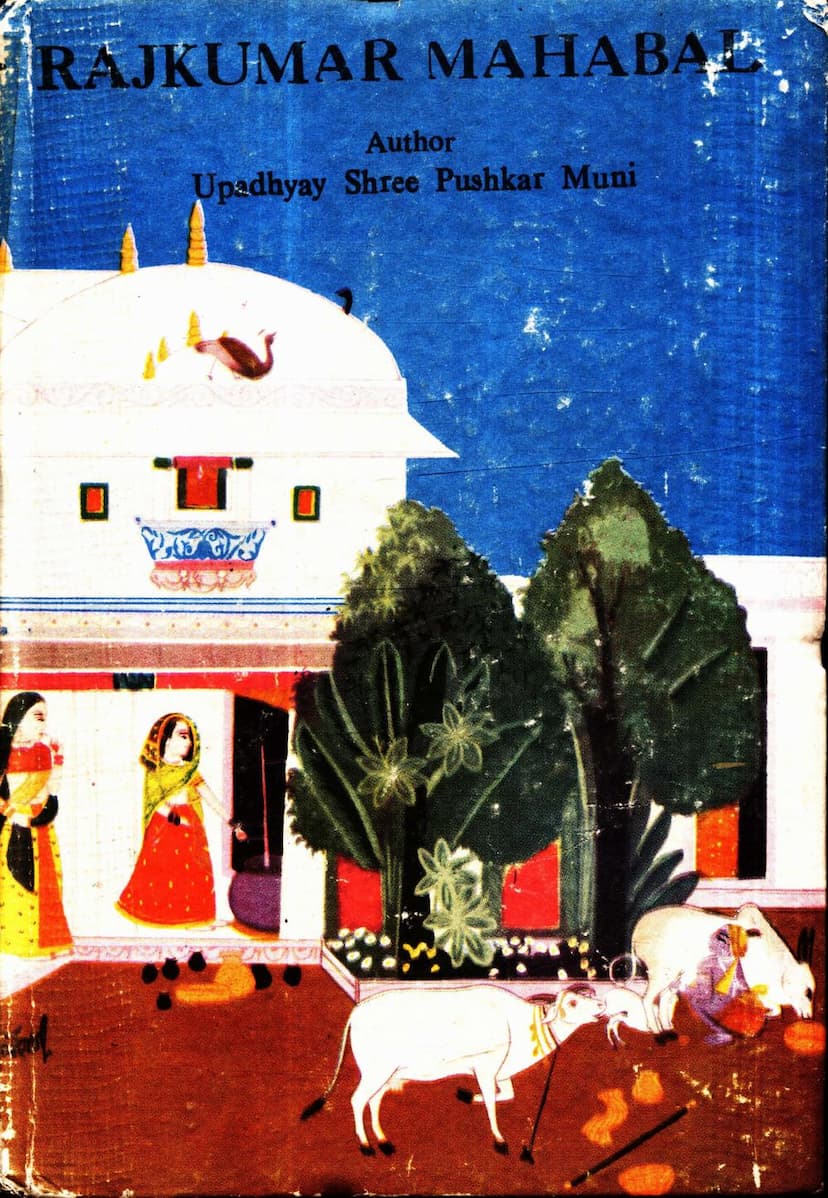Rajkumar Mahabal
Added to library: September 2, 2025

Summary
"Rajkumar Mahabal" is a collection of Jain stories that emphasizes moral teachings and spiritual values. The book, authored by Upadhyay Shree Pushkar Muni and edited by Devendra Muni Shastri, aims to impart lessons on good conduct, renunciation, morality, and the consequences of actions through engaging narratives.
The book highlights the importance of stories as a medium for cultural infusion and moral guidance, accessible to all age groups and literacy levels. It delves into the rich tradition of Jain story literature, which often intertwines entertainment with profound philosophical and ethical principles. The core message conveyed through these stories is to inspire readers towards virtuous deeds and to illustrate the detrimental outcomes of negative actions.
Key themes explored in the stories include:
- The Power of Truth: The story of Prince Vasu illustrates how unwavering adherence to truth, even in the face of immense pressure, can lead to divine favor and prosperity. Conversely, even a small deviation from truth can have severe consequences, as demonstrated by the fate of King Vasuraj and his sons.
- Consequences of Greed and Deceit: The narrative of the merchants Lobhanand and Lobhakar, who steal a magical vessel from a Yogi, shows how greed leads to suffering and retribution. Similarly, the story of Kanakmala's schemes to harm Malaya and Mahabal reveals the downfall of deceitful actions.
- The Importance of Renunciation and Detachment: The journey of King Munipati, who chooses renunciation over worldly pleasures, and the eventual detachment of Mahabal and Malaya from their kingdoms emphasize the Jain ideal of transcending material desires for spiritual liberation.
- The Role of Faith and Penance: The stories showcase how devotion, faith, and rigorous penance can lead to divine intervention and the overcoming of difficult obstacles, as seen in the experiences of Malaya and the merchant Kath.
- The Cycle of Karma: The book consistently demonstrates the Jain principle of karma, where actions in past lives influence present circumstances, and present actions shape future destinies. This is vividly illustrated in the previous birth stories of Mahabal and Malaya, explaining their complex relationship and challenges.
- The Perils of Untruthfulness and Ungratefulness: The tale of the ungrateful Bheel, who harms the female-monkey that saved him, and the story of the ungrateful lion that devours the physician who cured its blindness, serve as stark warnings against betraying kindness. The story of Keshav and his father also highlights the dire consequences of parental pressure against religious vows and the betrayal of truth.
- The Pervasiveness of Illusion: The book often features supernatural elements and divine tests, such as the Yaksha's illusions and the demon-god's deception, to test the resolve and character of the protagonists. It underscores the Jain philosophy that worldly life is often characterized by illusion and attachment.
"Rajkumar Mahabal" serves as a moral compass, guiding readers through complex human emotions and situations, ultimately advocating for a life of righteousness, compassion, and spiritual pursuit. The collection aims to provide solace, wisdom, and a path towards self-improvement through the timeless wisdom embedded in Jain teachings.